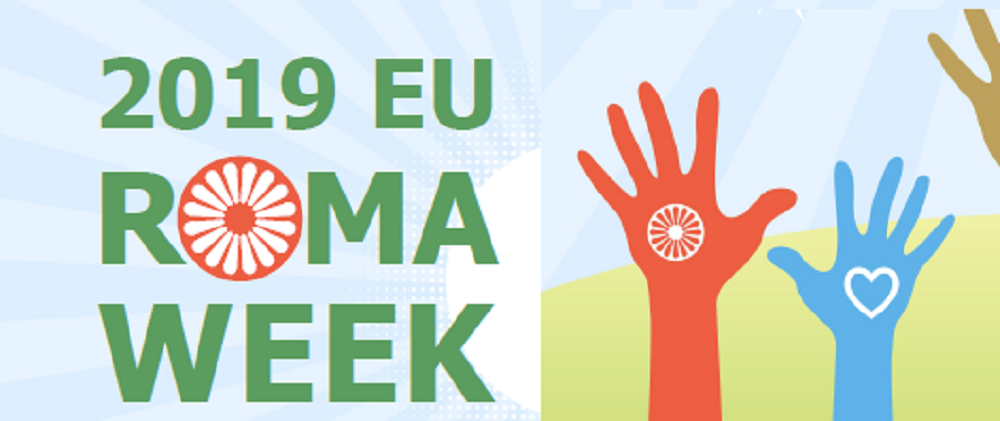
Representatives of the EURoma Technical Secretariat as well as of several Network partners (notably National Roma Contact Points) took part in the 4th EU Roma Week organised under the patronage of the European Parliament and the European Commission on 18th-21st March in Brussels.
This annual event is increasingly recognised as a key gathering on Roma issues for representatives of European institutions, national, regional and local authorities, civil society and other relevant actors. It consists of a series of events sponsored by members of the European Parliament and co-organised between the European Parliament (under the leadership of the Parliament’s Anti-Racism and Diversity Intergroup) with the European Commission and civil society organisations. In particular it aims to:
- Raise awareness about relevant aspects and developments of relevance for Roma;
- Provide a platform for exchange, knowledge-sharing and capacity-building between relevant actors;
- To review and provide recommendations on different areas and developments of relevance for Roma.
This year’s Roma Week took place at a particular moment, as it was the last one of the eight European Parliament’s legislative term 2014-2019 ahead of the parliamentary elections in May. It also took place coinciding with the International Day for the Elimination of Racial Discrimination on 21 March.
The 2019 Roma Week featured a series of events addressing a wide range of topics, including the EU Framework for National Roma Integration Strategies (NRIS), the connection between the 2030 Agenda and the Sustainable Development Goals with EU policies of relevance to Roma people, the promotion of Roma political participation, the reintegration of Roma returnees in the Western Balkans, the evaluation of the fight against racism and discrimination in the 2014-2019 period and recommendations for the 2019-2024. It also included the award ceremonies of the European Civil Rights Prize of the Sinti and Roma and of the third EU Award for Roma Integration in the Western Balkans and Turkey for Women Grassroots Activists.
The event on the evaluation of the EU Framework for National Roma Integration Strategies allowed participants to discuss about the EU Framework and the NRIS based on the outcomes of the European Commission mid-term evaluation as well as the information gathered in the context of the pilot project ‘Capacity building for Roma civil society and strengthening its involvement in the monitoring of national Roma integration strategies’ (known as Roma Civil Monitor). This project, implemented in all EU Member States except Malta, aims to contribute to strengthening civil society monitoring in the implementation of the NRIS by developing the policy monitoring capacities of civil society actors and by supporting the preparation of high-quality, comprehensive annual civil society monitoring reports. The event focused on the implementation of the NRIS in six of the countries covered (Italy, Germany, Bulgaria, Romania, Hungary and Slovakia) gathering, for each of the countries, representatives of the public administration and of the civil society organisations involved in the project.
The high-level event ‘Creating Trust through Uncovering and Recognising the Truth: Advancing Recognition and Remedy for Anti-Gypsyism’ was another relevant moment of the Week. It focused on the state-of-play and efforts to advance the fight against anti-Gypsyism and to advocate for equality and inclusive, democratic societies by advancing truth, recognition, remedy, trust and reconciliation processes at national and European levels, including through the establishment of Truth and Reconciliation Commissions. This initiative follows the call of the European Parliament Resolution on fundamental rights aspects in Roma integration in the EU: fighting anti-Gypsyism to establish truth and reconciliation processes to analyse the roots, manifestations and impact of anti-Gypsyism in the past and present, to advance the recognition of and remedy for anti-Gypsyism, and to build new trust between Roma, institutions and the public at large. The report ‘Scaling up Roma Inclusion Strategies: Truth, reconciliation and justice for addressing antigypsyism’, elaborated by a study group of the Central University of Budapest also served as basis for the discussion on aspects to take into account for the success of ‘Truth and Reconciliation Commissions’, based on the experience of countries that already have this type of structures (e.g. Australia, Canada, South Africa, Sweden and Romania).

